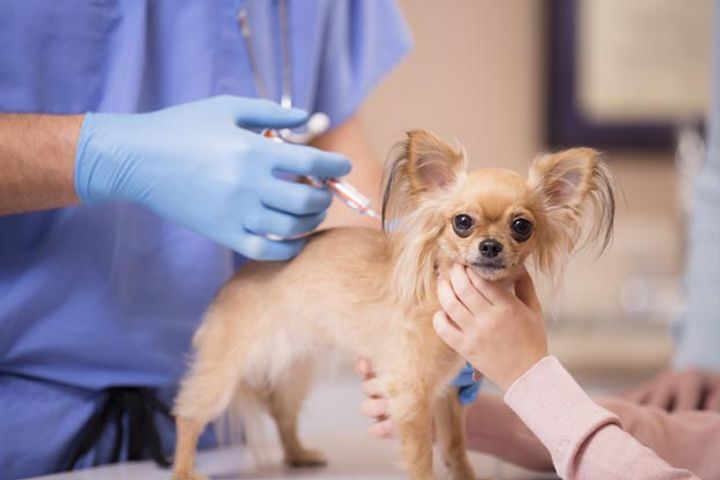 China's Grey Vet Sector Is a Nightmare for Pet Owners But a Dream for VCs
China's Grey Vet Sector Is a Nightmare for Pet Owners But a Dream for VCs(Yicai Global) Aug. 8 -- A lack of regulation in China's veterinary sector is leading to big bills and headaches for the growing number of pet owners in big cities, but venture capitalists are lapping up the chance to back firms that arbitrarily set prices to treat diseases that animals may not even be suffering from.
The distinct lack of supervision became clear to a woman surnamed Ting, who works at a foreign-backed firm in Shanghai, when she recently rescued an abandoned puppy. After taking it to a vet for a checkup, she was told the pup needed to be hospitalized immediately at a cost of CNY600 (USD88) a day, and undergo treatments costing up to CNY8,000 -- which the doctor said may not even be effective.
Ting was torn. She had only just stumbled across the pooch, but his puppy eyes could be about to cost her nearly a month's salary. So Yicai Global contacted the official price watchdog, only to find that as pet hospitals are not a public service or welfare product, they can set prices at their own discretion.
Essentially, there is no regulation. Pet owners do not even have anywhere to complain if vets overcharge them, which appears to occur frequently. Several owners from Beijing, Guangzhou and Shenzhen namedropped Puppy Town, Petsguard and Ruipeng Pet when telling Yicai Global about the practice.
"After three days and CNY5,000 I'd gotten nowhere," one agitated pet owner said. "I went to two big chain pet hospitals in Beijing, but my cat still died -- leaving me a bill of nearly CNY40,000 (USD5,860).
"As a 'pet parent,' you just don't ask the price of an urgent treatment," the woman added.
After the ordeal, she contacted the manager of a Puppy Town branch in the capital, asking about the cost of medicines and their regulation. He admitted that as the sector is still very young there is no agency overseeing the market.
Pets Can't Talk
As pets cannot talk, it is easy for doctors to invent diagnoses and collect fees as they wish, said Zhang Cun, deputy director of Zhejiang Academy of Agricultural Sciences' animal sciences institute. Even if there is a dispute or mishap, it is difficult for a regulator to investigate and collect evidence after the fact and that makes it tough for consumers to defend their rights, he added.
"There are more and more pets now, so I believe the government will introduce a regulatory system in the near future," Zhang said, adding that intervention and industry self-discipline are needed to step out of this vicious cycle.
Mass Market
Some institutions estimate that there are around 80 million domesticated cats and dogs in China, and the figure is growing at around 8 percent a year thanks to Chinese consumers' love of all things cute.
Healthcare is the second largest segment in the industry, which was worth CNY180 billion (USD26.4 billion) last year, behind pet food. The top two segments are the fastest growing.
"China's pet food market is dominated by giants like Mars and Nestle," said Ju Yi, founder of pet e-commerce site PuffGogo. "The healthcare market is highly decentralized and there are no standout players -- but it's undeniable that the market has seen intense capital consolidation."
There are about 10,000 vet clinics in the country, with professional chains making up less than a tenth, according to a 2017 white paper published by the Chinese Pet Products Association. The mixed quality of the hospitals makes it tough to satisfy demand and allows vets to set their own prices and leave pet owners little room to bargain.
Investors' Paradise
Clinics in first-tier cities like Beijing and Shanghai pull in gross profit margins of between 50 and 60 percent, according to one industry expert. Pet food sales garner margins of about 30 percent and companies offering boarding and beauty services rake in more than 60 percent, she added.
A lot of investors are monitoring the sector, she continued, saying one of the most prevalent is Hillhouse Capital. The firm has even built a special investment vessel for pet healthcare: Zhuhai Cehang Investment and Consulting.
Hillhouse backs Puppy Town as well as Dr. Pet, Vet Anan, Ainuo and Chongfuxin -- all veterinary clinics. The cash injections have helped the brands rapidly accelerate, with Puppy Town planning to have 150 pet hospitals by the end of the year compared with just three in 2015.
Another keen investor is Goldman Sachs, which pumped CNY200 million into Ringpai National Chain Veterinary Hospital in May 2017. In May this year, the backer teamed up with partners to pour another CNY350 million into the firm, setting a new record for a single injection into a Chinese pet hospital and the largest round of fundraising in the entire pet sector this year.
Editor: James Boynton